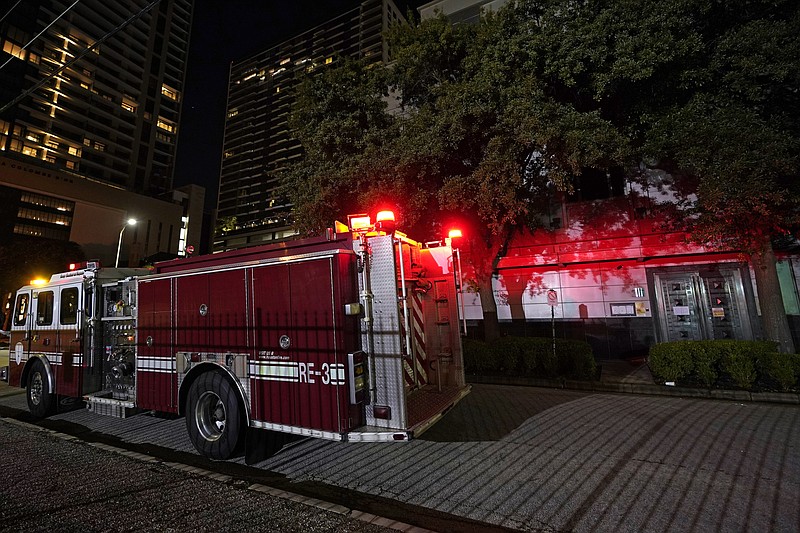WASHINGTON (AP) - The United States ordered China to close its consulate in Houston, escalating tensions between the world's largest economies as President Donald Trump ramps up pressure against China ahead of the November election. Beijing denounced the order Wednesday as "outrageous" and said it would draw a firm response if not reversed.
The physical closure of the consulate, one of China's six missions in the United States, marked a dramatic step in increasingly contentious relations that have been strained not only by the conronavirus pandemic but disputes over trade, human rights, Hong Kong and Chinese assertiveness in the South China Sea.
Previous Trump administration measures against Chinese officials, students and researchers have included travel bans, registration requirements and other steps intended to reduce the country's footprint in the United States. The administration has also announced its outright rejection of virtually all Chinese maritime claims in the South China Sea.
These actions have come as Trump has sought to blame China for the coronavirus outbreak in the U.S., where cases have soared, threatening his prospects for re-election.
The State Department said it ordered the consulate closed within 72 hours after alleging Chinese agents have tried to steal data from facilities in Texas, including the Texas A&M medical system statewide and The University of Texas MD Anderson Cancer Center in Houston.
There were indications consulate staff were preparing to leave: Papers were being burned on the consulate grounds late Tuesday night - a common practice when a diplomatic post is being shuttered on short notice.
State Department spokeswoman Morgan Ortagus said in a statement the closure was "to protect American intellectual property and Americans' private information."
"The United States will not tolerate (China's) violations of our sovereignty and intimidation of our people, just as we have not tolerated (China's) unfair trade practices, theft of American jobs, and other egregious behavior," she said.
Testifying before Congress on Wednesday, Deputy Secretary of State Stephen Biegun lamented relations today are "weighed down by a growing number of disputes," including commercial espionage, intellectual property theft, unequal treatment of diplomats, businesses and journalists.
Those factors led to Trump's action on the consulate, he told the Senate Foreign Relations Committee.
The Department of Justice on Tuesday had announced the indictments of two Chinese hackers on charges of trying to steal pharmaceutical secrets from U.S. companies related to the COVID-19 pandemic that originated in China. Although there was no indication the indictments and the consulate action were related, the U.S. has long alleged China is involved in nefarious activity around the country, including from its Houston consulate.
Even before the U.S. announced the closure, which was conveyed privately to the Chinese ambassador Tuesday, China strongly condemned it. A foreign ministry spokesperson called it "an outrageous and unjustified move that will sabotage relations between the two countries."
"The unilateral closure of China's consulate general in Houston within a short period of time is an unprecedented escalation of its recent actions against China," foreign ministry spokesperson Wang Wenbin said at a daily news briefing in Beijing. He warned of firm countermeasures if the U.S. does not reverse itself.
Wang accused the U.S. of opening Chinese diplomatic pouches without permission multiple times, confiscating Chinese items for official use and imposing restrictions on Chinese diplomats beginning last October and again in June. He also said U.S. diplomats in China engage in infiltration activities.

